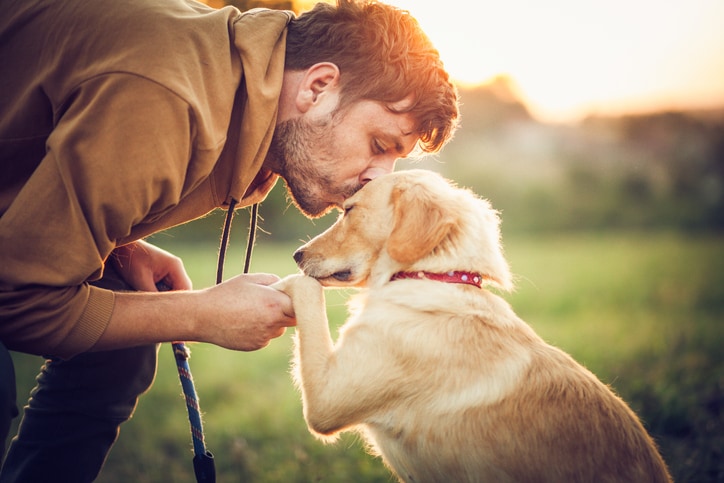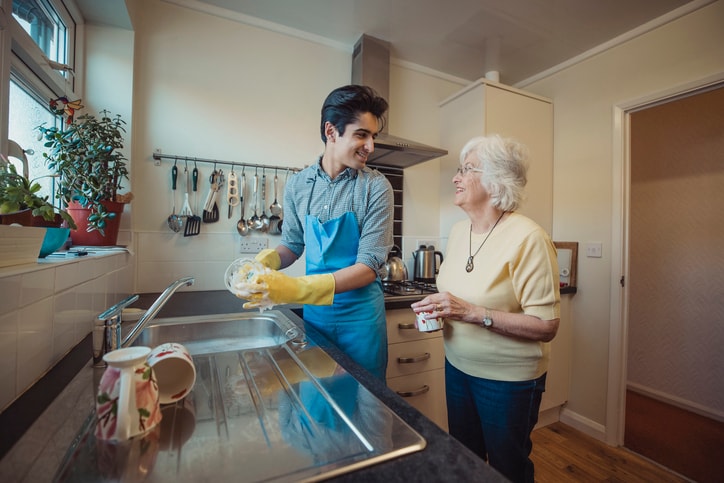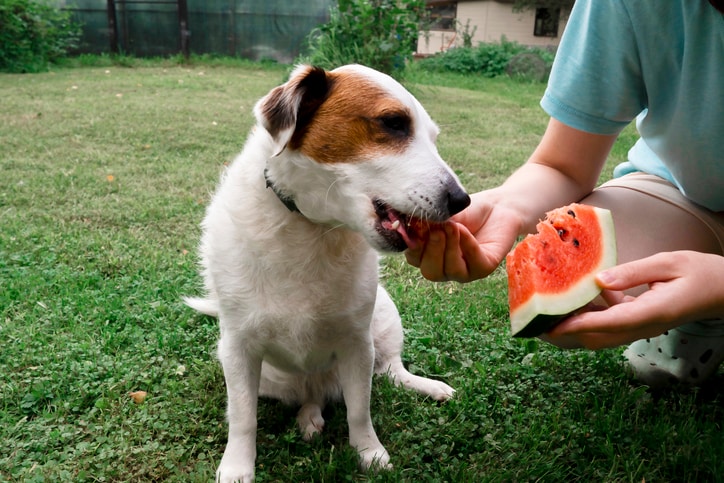Life with a new puppy can seem like all fun and games — until that sweet little pup poops on the rug. Because it takes a lot of time and patience to potty train a puppy, some new dog owners may want to consider seeking professional help from a dog trainer.
Animal behaviorist Mary Burch says that a professional dog instructor can help dog owners overcome some of the most difficult parts of puppy training. “Some of the greatest challenges owners face while housetraining a puppy involve being consistent, taking the puppy outside often enough and on a regular schedule, and recognizing the puppy’s subtle cues that it needs to go outside,” she says. “If there are problems and the puppy isn’t catching on to housetraining, a qualified, experienced trainer can help.”
If you’re wondering, “Can I hire someone to potty train my puppy?” here’s what you need to know to get started.
Hiring a professional to potty train your puppy
Hiring a professional to potty train your puppy can be a huge time- and energy-saver. After all, house training a puppy is not only a huge time commitment but it’s a commitment that some busy new dog owners — especially those who have full-time jobs — simply aren’t able to make. For example, early on, a young puppy may need to be taken out consistently and frequently — as often as every half hour — and this grueling schedule can be tough to keep up with. But if you hire a puppy potty training pro, they can take the reins on this necessary step in the training process.
Puppies excel when they have a predictable environment — which is why it’s so important to be consistent with their training, points out dog trainer Lindsay Hamrick, director of shelter outreach and engagement for the Humane Society of the United States. That’s why it may be best to hire a dedicated professional.
It also bears noting that trainers offer a board and train program in their own homes. “This can be a great option for working professionals who are unable to let their puppy out consistently,” says Hamrick. “In some programs, the trainer will work on basic obedience skills and housetraining over the span of a few weeks and then pass those skills along to the owner when they return home.”
A professional dog trainer can also help with potty training older dogs. “Just because the dog is an adult, if it is not trained, don’t expect to begin house training by leaving it for hours at a time,” Burch says. “Think baby steps. Train the special needs dog as you would a puppy.”
How to find trainers/professionals
A quick Google search for local puppy trainers in your town can jumpstart your hunt for the right puppy potty training professional. You might also try sites like Thumbtack which aggregate and offer lists of trained professionals in your local area. You’ll do well to look for a trainer who has a Certified Professional Dog Trainer certification or CPDT. You might also inquire with your dog’s veterinarian to see if they know anyone they can refer you to.
“Dog trainers should have a solid understanding of learning theory and how best to use rewards and body language to help a puppy learn about the world.”
— Lindsay Hamrick, Director of Shelter and Engagement for the Humane Society
Join Care for free
How to go about hiring someone to housetrain your puppy
When seeking a dog trainer for your puppy, take the time to interview potential candidates with your pup present. Pay attention to how they interact with your dog and be prepared with some basic questions.
Burch suggests starting with the following:
- Where did you receive your training?
- Do you have any certifications?
- How long have you been training dogs?
- Do you have experience with puppies?
- What is your philosophy related to training?
- Do you offer any puppy classes or socialization groups?
Hamrick also recommends asking what training methods the dog trainer uses. “The use of shock collars, yanking on a dog’s leash or any physical violence should not be tolerated,” she adds. “Dog trainers should have a solid understanding of learning theory and how best to use rewards and body language to help a puppy learn about the world.”
A red flag: “Any trainer that advises rubbing a puppy’s nose in their mess should be avoided,” says Hamrick.
How to yourself up for puppy potty training success
From reading up on puppy potty training tips from respected organizations like the Humane Society or ASPCA to working alongside a professional, there are bevy of ways to ensure that you and your pup hit the milestone you’re aiming for. But it bears noting that, even if you do hire a pro to help you house train your puppy, you will still need to adjust your schedule and make some sacrifices in order to stay on track. It may take a few months to completely house train your pup, and Burch encourages patience throughout the process.
“Never punish your puppy or dog for having a house training accident,” says Burch.
If your puppy was making good progress and has a setback, Burch recommends backing up to the previous step in house training and starting over. “For example, if he was able to hold it one hour and is now having accidents, go back to going outside every 45 minutes.”
And if the problem persists, see your veterinarian who can consider whether your puppy may be dealing with an underlying medical issue (such as a urinary tract infection).


